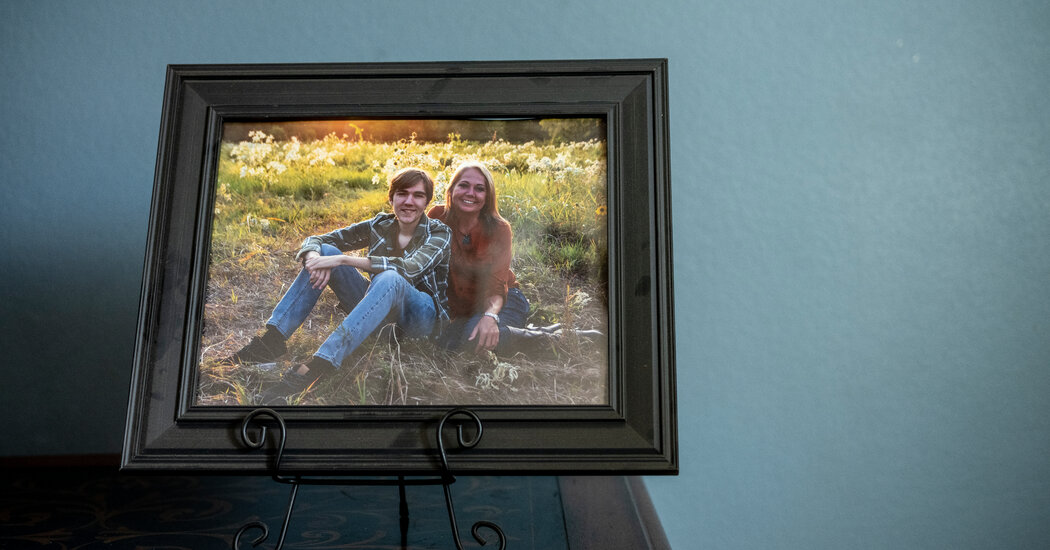Bill Outlawing Online Suicide Assistance Would Open Sites to Liability
Bipartisan legislation in the House targets not only the online activity of individual users but also the website operators hosting it.Lawmakers are seeking to make online assistance of suicide a federal crime, pushing to hold accountable both individual users and the tech companies and websites that allow such content on their platforms.A bipartisan bill introduced in the House of Representatives on Monday, the Stop Online Suicide Assistance Forums Act, comes amid rising concern over suicide rates among young people, and mounting evidence of online dangers.The bill’s primary sponsor cited a Times investigation published last December into a website where members share detailed instructions on how to die and encourage one another to follow through with suicide plans. The investigation identified 45 deaths connected to the site and found hundreds of posts suggesting that the true toll was much higher. “As a mom,” said Representative Lori Trahan, Democrat of Massachusetts, the findings were “terrifying, and it motivated us to act.” Co-sponsoring the bill with her were Katie Porter, Democrat of California, and the Republicans Mike Carey of Ohio and Chris Stewart of Utah.Even as the trail of suicides connected to the site grows longer — The Times has since identified dozens more deaths, including several young teenagers — no one involved has faced legal consequences.While most states have laws against assisting suicide, they are inconsistent and rarely enforced, and don’t explicitly address online activity. It is not clearly established to what extent speech about suicide is protected by the First Amendment.The new federal bill draws on a Minnesota State Supreme Court ruling, which affirmed that offering suicide instructions in an online exchange was a crime. Previous legislation aimed at this issue, the Suzanne Gonzales Suicide Prevention Act, first proposed in 2007 and named for a 19-year-old who had killed herself after receiving instruction on the internet, would also have made online assistance of suicide a federal crime. It was introduced several times but never received a vote.The new bill would allow prosecution under an existing exception to Section 230 of the Communications Decency Act, the law that governs online activity and typically shields website operators from liability for content posted by users. Exempt from protection are website operators who host content that violates federal criminal law.While Facebook, Twitter, Reddit and other platforms have in recent years prohibited users from sharing suicide methods and encouraging self-harm, they haven’t fully eliminated it. Under the new bill, they could be subject to penalties of up to five years in prison and hundreds of thousands of dollars in fines.The bill does not criminalize the act of suicide or the encouragement of it. It also does not interfere with state laws that explicitly allow physician-assisted death for the terminally ill.Suicide awareness and prevention organizations and the families of young people who died in connection with the suicide website have urged such legislation.“It’s at least one important step. We need to get this online help taken down,” said Sharon Luft, whose 17-year-old son Matthew killed himself last year less than a month after joining the site.When Matthew inquired about a specific method, another member was quick to reply with a link to detailed instructions on how to use it to die. He later sought and received more detailed advice to make sure his efforts would work. At one point, he wondered if the method was working and asked if he should keep going. Another member responded, “If you want the attempt to be a success, then yes.”“Websites that encourage suicide and offer instructions are harmful, particularly to youth and young adults,” said Robert Gebbia, the chief executive of the American Foundation for Suicide Prevention.Diego Joaquín Galante and Lamarcus Small, revealed by The Times as the two men who created the suicide website and operated it for years, framed it as a “pro-choice” forum supporting members’ decisions to live or die, and presented themselves as defenders of free speech. In online posts under the name Marquis, Mr. Small repeatedly said that the site complied with U.S. law.After the Times investigation, the two men announced that they had handed over the site to new administrators who espoused similar beliefs. In September, according to the analytics firm Similarweb, the site drew nearly 10 million views.If you are having thoughts of suicide, call or text the National Suicide Prevention Lifeline at 988 or go to SpeakingOfSuicide.com/resources for a list of additional resources.
Read more →
